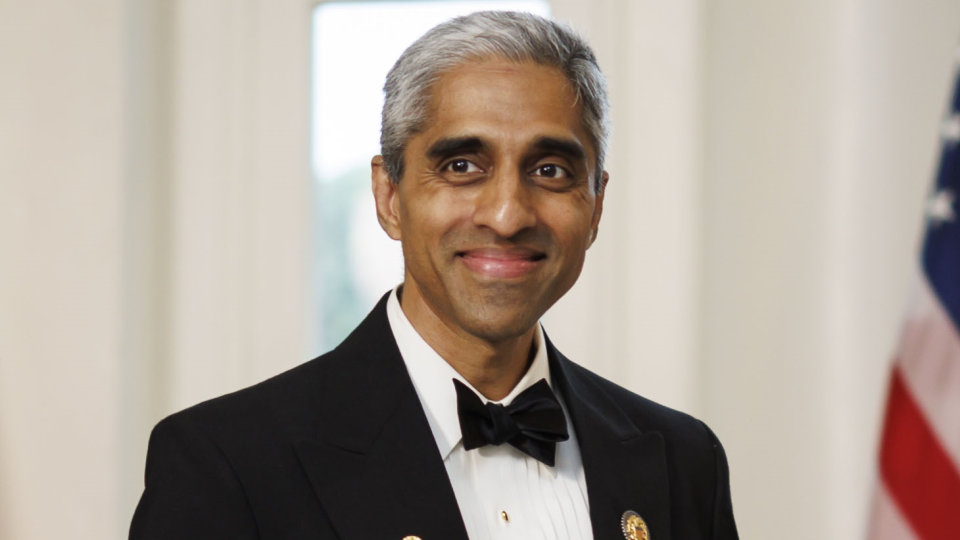US surgeon general wants social media warning labels
One of America's most senior health officials has called on the country to impose smoking-style warning labels on social media platforms.
Writing in the New York Times, Surgeon General Vivek Murthy said social media increased the risk that children would experience symptoms of anxiety and depression.
He wants people who visit these platforms to be shown a message warning that they are "associated with significant mental health harms for adolescents".
He said such a label would "regularly remind parents and adolescents that social media has not been proved safe".
The BBC has approached Youtube, TikTok, X and Meta, which owns Facebook and Instagram, for comment.
Warning labels were first added to cigarette packaging in the US in 1966, after then-Surgeon General Luther L Terry published a report linking tobacco to lung cancer.
Other countries then followed, with the UK requiring a similar message to be printed on packets in 1971.
Mr Murthy said that the evidence showed adding these labels to tobacco packaging increased awareness of the risks associated with smoking.
And he believes that a similar warning applied to social media platforms would encourage parents to monitor their child's safety online.

In the article, he also called for phone use to be banned in schools, and said parents should stop children from using devices during meals and at bedtime.
It comes after Mr Murthy published a public health advisory in 2023 which found a link between teenage social media use and poor mental health.
But he accepts that there is no academic consensus on the impact of these platforms, and is calling for more research to be done.
"In an emergency, you don’t have the luxury to wait for perfect information," he said.
"You assess the available facts, you use your best judgment, and you act quickly.
"The mental health crisis among young people is an emergency - and social media has emerged as an important contributor."
'Not inherently harmful'
Gin Lalli, psychotherapist and author of How to Empty Your Stress Bucket, told the BBC warning labels would be "a significant step towards promoting better mental health and wellbeing".
She said that social media may have many benefits, but there may also be some risks such as cyberbullying or exposure to harmful content.
"These risks lead to anxiety, depression and other mental health issues, something myself and my colleagues are seeing more and more."
She said a warning label would act as a reminder for people to be mindful of their usage, and to take regular breaks.
"I can also see warning labels as being of great benefit to the parents – having that ‘back-up’ so to speak means that they can feel more confident in setting boundaries around social media use," she said.
There is an ongoing debate about the impact of social media on young people.
Some research has found a link between heavy social media use and a negative impact on teenagers' mental health, and other research has linked teenage social media use to a reduction in how satisfied children feel with their lives.
But a 2023 study found no evidence linking the global spread of Facebook and widespread psychological harm, while other research reported some children benefit from spending time online speaking to friends they already know offline.
And the American Psychological Association says social media is "not inherently beneficial or harmful", though it warns of problematic use and wants content removed which encourages harm.
It also said "most" under-14s should be monitored while using social media.
In the UK, tech firms will have to take more action to keep children safe on the internet, with the Online Safety Act set to come into force in 2025.
Media regulator Ofcom set out new rules for tech firms in May, requiring them to have robust age-checking measures and to steer children away from "toxic" material.
But parents of children who died after exposure to harmful online content want the rules to go further.


